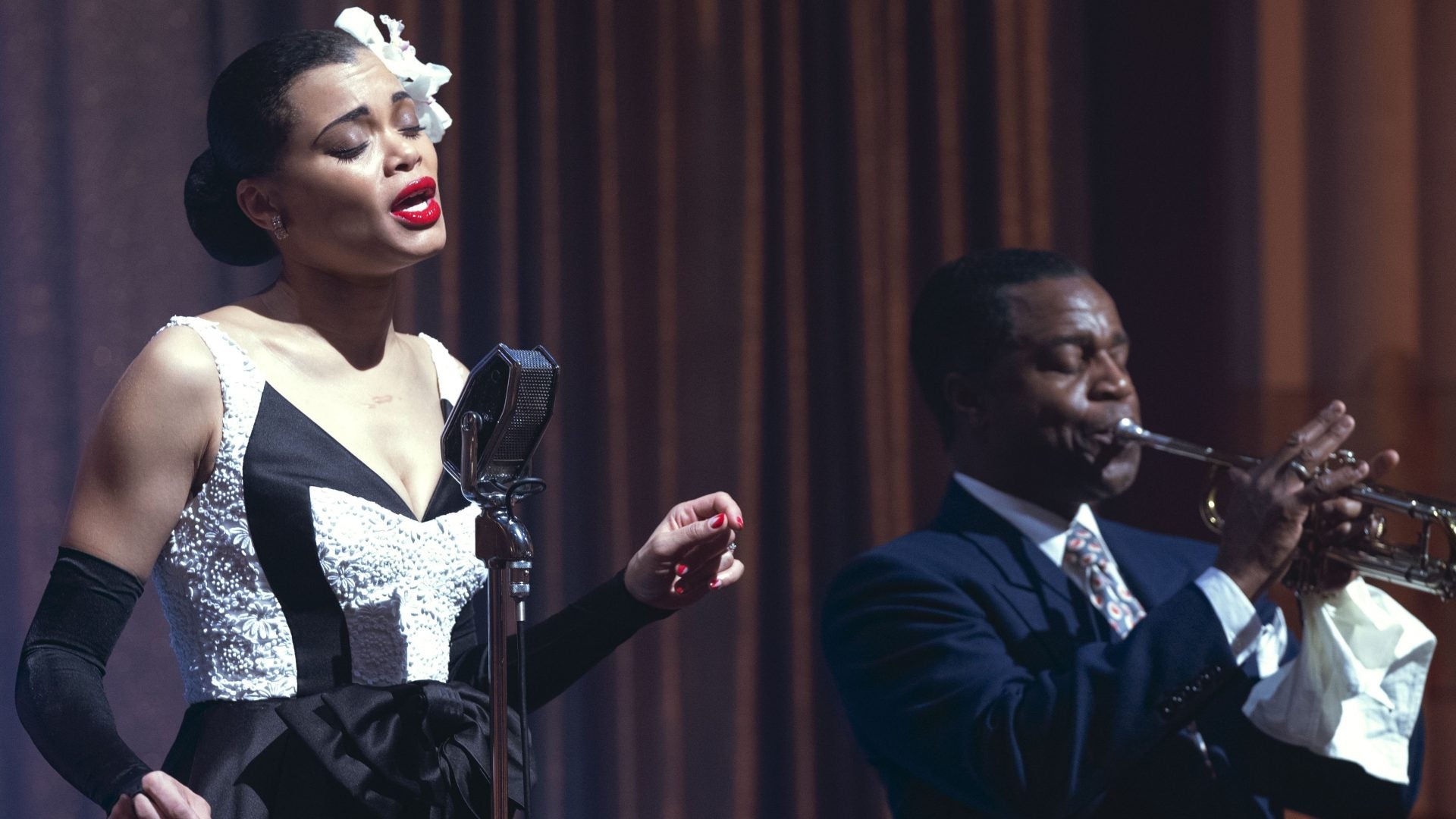The United States vs. Billie Holiday
Posted on February 25, 2021 at 5:03 pm
B +| Lowest Recommended Age: | Mature High Schooler |
| MPAA Rating: | Not rated |
| Profanity: | Very strong language, n-word |
| Alcohol/ Drugs: | Alcohol and drug abuse and addiction |
| Violence/ Scariness: | Some peril and violence including domestic violence |
| Diversity Issues: | A theme of the movie |
| Date Released to Theaters: | February 26, 2021 |

And nothing less could do for the portrayal of one of the most formidable performers of the 20th century. This movie could not work unless we saw what the audiences of the 40s and 50s saw, a singer who could break your heart and make you grateful for it.
In “Lady Sings the Blues,” one diva played another, with Diana Ross also outstanding in a traditionally-structured biopic, from childhood through her career, her struggles with drugs and alcohol, and abusive relationships. A recent documentary, “Billie,” used archival materials assembled in the 1970s by a biographer who died before she could complete the project. It has valuable insights from people who knew Holiday and saw her perform.
This movie, from Lee Daniels, is different because its focus is on just one part of Holiday’s life. Like “Judas and the Black Messiah,” this is the story of betrayal, and a conflicted source who cared about the person he was informing on.
Billie Holiday attracted the attention of J. Edgar Hoover because of a song. It was “Strange Fruit,” written by Abel Meeropol, first published in 1937 as a poem called “Bitter Fruit.” He later added music. The “stronge fruit” hanging in the trees in the song’s lyrics are the dead bodies of Black people who have been lynched, murdered by a racist mob. “Blood on the leaves and blood at the root/Black bodies swingin’ in the Southern breeze/Strange fruit hangin’ from the poplar trees.”
Holiday’s 1939 performance of the song is now a recognized classic and is included in the National Recording Registry, which “highlights the richness of the nation’s audio legacy.” But in 1939 lynching was considered so acceptable by government and media and culture they actually sold postcards showing bodies hanging. This was 15 years before the murder of Emmitt Till, a Black teenager from the North, led to calls for reform. And as of this writing, Congress has still been unable to pass an anti-lynching bill. So, telling the truth about lynching in a song was considered dangerous, and Hoover wanted to stop her.
One of the first Black FBI agents (“Moonlight’s” Trevante Rhodes as Jimmy Fletcher) is assigned to her case. The pressure he is under is almost as crushing as the pressure on Holiday. He has the all-but-impossible task of proving himself to skeptical and often racist colleagues. And he cannot help siding with what Holiday is doing and being mesmerized by her as well.
The storyline is murky at times. It is also soapy and melodramatic, but face it, Holiday’s life was as soapy and melodramatic as her songs. Through it all Day manages to be as magnetic as the formidable woman and powerful entertainer she is portraying. At any given moment, Day has to be precise about where Holiday is on her various journeys in and out of addiction to various substances, including the men in her life, and she makes it work every time. She shows us Holiday’s toughness and her vulnerability. And, with the help of glorious costumes from Paolo Nieddu (the hats!), she owns the screen. She owns her story.
Parents should know that this movie includes alcohol and drug abuse, nudity and sexual situations, domestic abuse, and very strong language.
Family discussion: Should the government get involved in artists’ songs, movies, plays, books, or tweets? What could Jimmy have done differently?
If you like this, try: “Lady Sings the Blues,” “Billie,” and “Judas and the Black Messiah”



